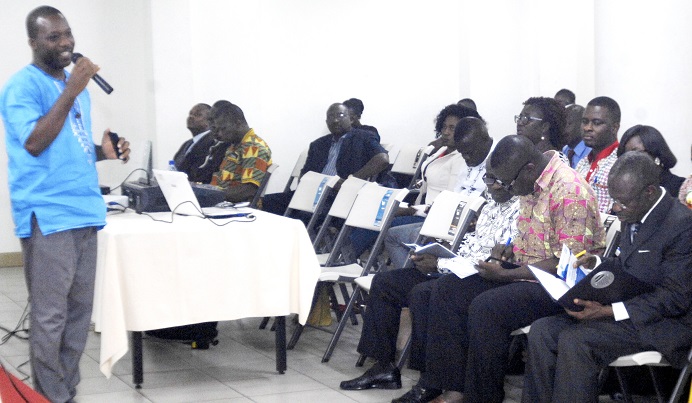
Ghana loses $2.1 billion annually to tax evasion
A study into tax evasion has revealed that Ghana loses close to $2.1 billion annually to tax evasion by corporate groups, individuals, multinationals and organisations operating in the country.
The study, carried out by the Integrated Social Development Centre (ISODEC), a civil society organisation, on behalf of the National Coordinating Council of Public Services International (PSI), further revealed that such entities either avoided tax or engaged in illicit trade which affected the tax net, thereby running down the national kitty.
Between 1970 and 2008, the nation lost in excess of $4.9 billion as a result of the dodging of taxes by such entities.
A policy analyst at ISODEC, Mr Bernard Anaba, made this public when he spoke at a day’s conference on tax justice in Accra yesterday.
It was on the theme: “Tax justice and public sector restructuring.”
The conference was aimed at soliciting the views and ideas of public sector workers on how to ensure justice and equity in the payment of taxes by all, including multinational companies.
How taxes are avoided
Expatiating on how multinationals, for instance, evaded taxes, Mr Anaba said those companies set up subsidiaries in developing countries and operated in cross-border investment stocks through which they routed their profits through the borders through illicit means.
“They usually ship their profits outside the country quickly and pretend that they had not made any profit at the end of the year,” he said.
He said experiences from elsewhere had shown that multinationals which avoided taxes were usually fined hefty amounts to serve as a deterrent and said Ghana could learn from that.
Meanwhile, a report by the United Nations Conference on Trade and Development (UNCTAD) indicates that multinational enterprises contribute an estimated $730 billion annually to government budgets in developing countries, including Ghana.
Role of unions
Representatives of public service workers in attendance expressed concern over the government’s decision to grant tax incentives in excess of $932 million to the Meridian Port Services, a private company.
They said the continued granting of tax incentives, which in their view was done capriciously and arbitrarily, was causing the nation huge sums of money, for which reason the government needed to rethink that decision.
The Chairman of the National Coordinating Council of the PSI, Mr Kwaku Asante-Krobea, called on the various unions in the public sector to form task forces to mount pressure on the government to block the loopholes that existed in the tax system.
“As unions, we should form task forces that will pressurise the government and the various parliamentary sub-committees to enact laws that will enhance and widen the tax net,” he added.
